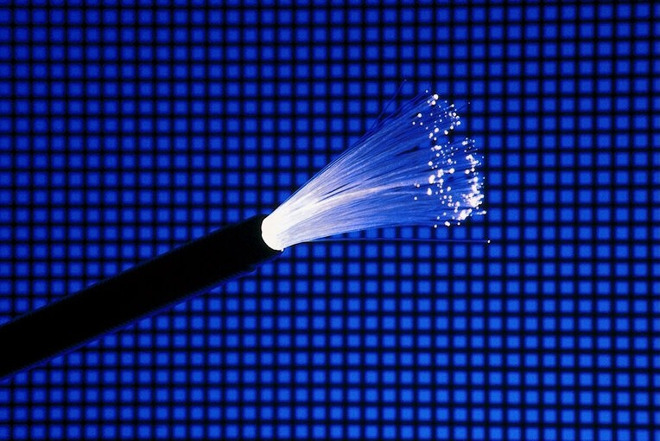Wednesday's submission of the "Save the Internet Act" is attempting to reverse a repeal of regulations by the Federal Communications Commission in 2017.
The bill, advised by Speaker Nancy Pelosi on Wednesday morning ahead of its reveal, is a continuation of attempts from 2018 to combat an FCC decision to repeal net neutrality protections. While the Senate passed a resolution to reinstate neutrality regulations, the Republican-controlled House of Representatives declined to carry on, something which the now Democrat-controlled version has decided to continue.
Today's bill effectively seeks to reinstate the same sort of protections offered by the application of Title II of the Communications Act on telecommunications providers, namely requiring internet providers to act as if they are offering a utility, such as water or electricity. All traffic that consumers request must be handled evenly with no favoritism or discrimination for or against specific services.
The original rules, brought in under former FCC chairman Tom Wheeler, were prompted by claims of internet providers having the capability to create "fast lanes," striking deals with online services to offer the fastest possible connections to consumers, including providing priority for that service's traffic. It was also alleged internet providers had the opportunity to throttle internet traffic from specific sources, slowing down the connection and making them less attractive to consumers.
The latest bill, shared on Twitter by Senator Ed Markey, consists of just three pages, asks for the "restoration of (the) repealed and amended regulation" in question, as well as highlighting the original regulation's aims of "protecting and promoting the open internet."
Here's the Save The Internet Act of 2019 that nearly every Senate Democrat joined me in introducing today. 3 pages that will restore #NetNeutrality. Let's pass it and make the internet free and open again. #SaveTheNet pic.twitter.com/BCYtcmcMe3
— Ed Markey (@SenMarkey) March 6, 2019
"The Save the Internet Act would enact true net neutrality protections by codifying the FCC 2015 Open Internet Order as a new free-standing section of law, that would ensure the internet remains an open platform for innovation and competition," said Congressman Mike Doyle, chair of the House subcommittee for Communications and Technology.
Opponents of the bill are quick to offer criticism. In a statement provided to AppleInsider, American Action Network Presidnt Dan Conston claims "this legislation would shackle the Internet with outdated and burdensome regulations from nearly hundred years ago that were originally intended for the old landline telephone. Overregulating the Internet would stifle new investment and innovation, as well as slow down rollout of faster, better Internet service, like 5G technology, that consumers demand and is critical to economic growth in communities large and small."
"Instead of again rehashing the previous debate, Congress needs to look to the future and forge a new bipartisan solution," continued Conston, "so the Internet continues to drive economic growth and opportunity in today's digital marketplace."
The story so far
Following the introduction of net neutrality rules under former FCC chairman Tom Wheeler, current chairman Ajit Pai suggested a rollback of the rules under a "Proposal to Restore Internet Freedom," which was voted on and and set in motion in December 2017. The vote, which stopped internet providers from being regulated like utilities and freeing them to block, throttle, and prioritize traffic, faced a vast amount of opposition from major Internet companies including Apple, members of Congress, and other critics.
The Wheeler-era rules classified internet service providers as "common carriers" under Title II of the Communications Act, which gave the FCC the legal authority to strictly regulate connections, such as by preventing the creation of so-called "fast lanes." Pai believed the use of Title II was "heavy-handed," and that the decades of development under a "light-touch regulatory approach" was good enough for consumers and the industry without needing extra regulations.
The vote prompted members of the U.S. Senate to try and overturn the FCC's decision, a resolution that quickly gained backing to bring it to the floor for voting. While it did succeed in pushing the expiry of net neutrality protections from the original end date of April 23, 2018 to June 11, as well as passing the resolution with a slim margin of 52 for to 47 against via a forced vote, the effort faced considerable opposition from the Republican-dominated House of Representatives, and failed to be picked up.
Even if the House of Representatives did pass the resolution, there would have been a high likelihood it could have been vetoed by President Donald Trump. The current White House administration has signaled its support for the removal of protections, making the veto almost certain to have taken place if it did proceed to that stage.
At the same time as the Senate's moves commenced, attorneys general of 22 states commenced their own lawsuit against the FCC, arguing the FCC violated procedure with its rollback vote. The attempt to prevent the loss of the rules via the courts effectively ended in November 2018, almost two years later, with the Supreme Court deciding not to hear an appeal on the case.
The decision was mostly symbolic, as by that time, the net neutrality regulations that were preserved by a lower court before the implementation of the new rules in June that lifted the internet provider restrictions.
In an effort to work around the FCC' decision to scrap the Title II elements and the lack of progress made by lawmakers to implement rules themselves, the state of California took steps to implement its own net neutrality regulations. In October, the Justice Department attempted to prevent the regulations from taking into effect, arguing internet providers "cannot realistically comply with one set of standards in this area for California and another for the rest of the nation."
Four cable and internet provider organizations also stepped into the fray, with the American Cable Association, CTIA, NCTA, and USTelecom all suing to stop the law from commencing on January 1, declaring it a "classic example of unconstitutional state regulation. California ultimately agreed to delay the enforcement of the net neutrality bill, until courts resolved pending litigation pertaining to the FCC rollback.
 Malcolm Owen
Malcolm Owen







-m.jpg)






 Amber Neely
Amber Neely
 Christine McKee
Christine McKee


 William Gallagher
William Gallagher











34 Comments
Why not bring it to the voters? Than deal with Washington’s B.S for the next 20 years...
Congress was created almost 100 years before the invention of the telephone. This isn’t then...
Want some direction? Ask!
I have always been in favor of net neutrality -- enforced by government. The idea of "government control of the internet is as ridiculous as government control of any utility. The regulations are there to insure a fair shake for consumers and effective management of national infrastructure, nothing more, nothing less. But, that was all "back in the day" of internet being delivered over coax, FiOS, and LTE.
With the advent of 5G that could all change. Not only does 5G have the capacity to replace most or all of today's conventional delivery methods, but 5G can be software targeted to deliver pinpoint accuracy for critical functions like remote surgery and self-driving or remotely driven vehicles -- and a ton more.
I think this whole thing needs to be thought through as to how it will be used, how it fits into and supports critical U.S. infrastructure, and who says which resources get which resources? For instance: Do you trust Verizon to provide and decide how much you pay for remote surgery over their network? What will stop them from price gouging based on willingness to pay -- the same as Big Pharma does for life saving critical medications? Or say, your self driving car travels from the area covered by your Verizon network into AT&T's -- can AT&T then charge you a "roaming fee"?
Too late, we are all already dead.
Goddamn fascists. These idiots need to be forcefully repelled early and often.